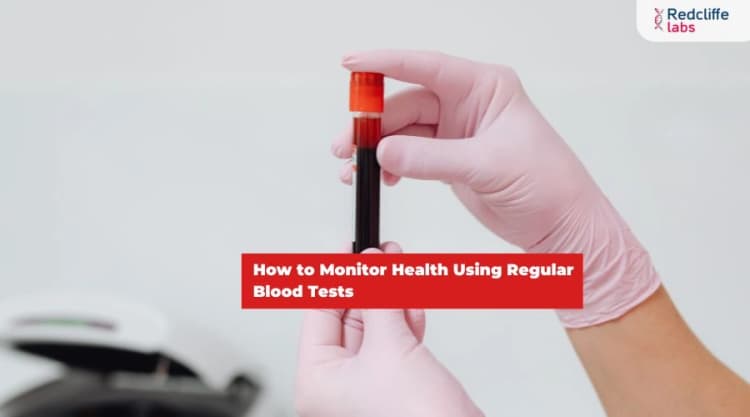Blood
Unlock special
discount on
this package
Login to Unlock 🔓
NABL Accredited lab*

Booking Benefits Unlocked Worth FREE 799

Report Consultation

Diet Plan
*Available once your report is generated.
At Redcliffe Labs, we have a single goal: to give India its right to quality diagnostics.
Customers served
Tests Processed Everyday
Cities
Collection Centres
World Class In-house Labs
Home Collection Experts
1 Test Parameters
PAPPa
1 PARAMETER INCLUDED
1 PARAMETER INCLUDED
- PAPPa
Top Booked Health Checkup Packages
Reports in 12 hours
|Parameters 94
Reports in 12 hours
|Parameters 89
Reports in 12 hours
|Parameters 96
Reports in 12 hours
|Parameters 96
Reports in 12 hours
|Parameters 90
Verified by Medical Expert

WRITTEN BY
Komal Daryani

MEDICALLY REVIEWED BY
Dr. Mayanka Seth
Table of Content
Introduction to PAP (Papanicolaou) Smear Test
Being the 4th most common cancer in women and 2nd most frequent in India, Cervical Cancer occurs with the unusual growth of cells in the cervix. It often develops slowly and is caused by persistent infections with certain strains of HPV (Human Papillomavirus). While Cervical Cancer is serious and can have life-threatening consequences, it is highly preventable and treatable when detected early. This is where the PAP Smear Test comes into action. The purpose of the PAP (Papanicolaou) Smear Test is to ensure early detection of abnormal changes in the cervical cells even before they take the form of Cancer. Diagnosing these abnormal or non-cancerous cells prevents their progression into cervical Cancer, increasing your chances of survival and better managing the condition. So, every woman aged 21 and above must embrace routine PAP Smear Screening to take charge of their cervical health.
Regular Pap Screening is the key that allows better monitoring of the changes in cervical cells, leading to early detection, even before the symptoms arise. Also named a Pap Test or Cervical Cytology, Pap Smear is a diagnostic test that significantly adds to the early detection of cervical Cancer and ensures its overall rate reduction. Redcliffe Labs is your trusted diagnostic partner to book a Cervical Screening Test. Are you looking for a Pap Smear Test near me? Book your test with us now.
Test Details:
|
Also Known As |
PAP Smear Test, Pap Test, Cervical Smear, Cervical Cytology, Papanicolaou Test |
|
Purpose |
Screen for abnormal cells in the cervical to help detect signs of cervical cancer early. |
|
Preparation |
Do not use vaginal creams for 24 hours before the test. |
|
Fasting |
No Fasting Required |
|
Get Reports Within |
1-2 Days |
|
Cost |
INR 500 |

Reasons You May Need A Pap Smear Screening Test:
A Pap Smear is a routine test not primarily conducted in response to specific symptoms. However, certain factors may prompt a healthcare practitioner to recommend this test. Such situations include:
- Age & Screening Guidelines: Women between the ages of 21 and 65 should consider regular Pap Screening once every three years. If you fall in the age range, your doctor may suggest you schedule your Pap Test today.
- Abnormal Vaginal Bleeding: If you suspect any unusual vaginal bleeding, bleeding in between periods, during intercourse, or after menopause, discuss it with your healthcare practitioner. They may suggest a Cervical Screening Test to rule out cervical issues or cancer.
- Unexplained Pelvic Pain: Unexplained or chronic pain may be associated with certain cervical abnormalities contributing to discomfort.
- HPV Infection: HPV, or Human Papillomavirus, is a major risk factor for cervical cancer. If your HPV test results are positive, your doctor may suggest a Pap Smear Test to monitor your cervical health.
- Family History: A family history of cervical cancer also increases your risk of the same and may prompt your healthcare practitioner to suggest frequent Pap Smear screenings for early and accurate diagnosis.
Whether you are developing any signs or have risk factors, your doctor may suggest a Pap Smear Test for cervical cancer prevention and early detection to reduce your risks and improve treatment outcomes significantly.

Purpose Of A Pap Smear Test:
- Ensure Early Detection: A Pap Smear Test primarily helps identify abnormal changes in the cervix cells before they develop into cancer. Detecting these changes ensures early diagnosis of Cervical Cancer, allowing prompt treatment and significant improvement in health outcomes.
- Help Prevent Cervical Cancer: Yes. As per the Centers for Disease Control and Prevention (CDC) findings, up to 93% of cervical cancers are preventable. Routine diagnosis helps identify and address non-cancerous and abnormal cervical cells before progressing to cancer.
- Monitor Cervical Health: For individuals with a history of Cervical Cancer, a Pap Smear Test serve as a mean that helps track their cervical health over time.
Aimed to ensure early detection and prevention of cervical cancer, a Pap Smear Test contributes to women's health. Women should follow the recommendations of their healthcare practitioner to discuss how often they may need a Pap Smear Screening to maintain optimal cervical health.

How should I prepare for a Pap Smear Test?
Since it is essential to maintaining reproductive health, a Pap Smear Test should be considered seriously. Most women found getting tested daunting, as they have so many doubts and concerns about their preparations. In general, a simple Pap Test doesn't require special preparations, but a few guidelines that one should keep in mind include the following:
- Consider The Right Time: Do not schedule your test during your periods, as the period blood can interfere with the results, leading to inaccuracies.
- Empty The Bladder: A full bladder can make the test uncomfortable and lead to discrepancies in the test results. Therefore, it is advisable to empty the bladder and get tested comfortably.
- Don’t Need To Fast: The test requires no fasting or dietary recommendations. However, if you are on a special diet or have doubts regarding any ongoing prescribed or non-prescribed medicines, discuss it with your doctor to avoid inaccuracies in the test results.
- Avoid Vaginal Products: You should avoid using vaginal products like cream, gel, medicine in the vagina, tampons, or anything you use for a certain period, as these products can interfere with the test results.
- Stay Calm: Being relaxed or comfortable during the test is essential to feel more comfortable and get tested appropriately.
- Communicate With Your Healthcare Practitioner: If you have any known illness, fears, allergies, or doubts regarding the procedure, feel free to communicate with your healthcare practitioner.
In short, a Pap Smear Test is a simple test that helps diagnose cervical cancer early, ensuring better management before the complication hits. So, don't delay the diagnosis and book a Cervical Cancer Screening with us today.
What happens during a Pap Smear Test?
We understand a Pap Smear Procedure can be discomforting for some. However, knowing what to expect can help you be mentally prepared. So, here’s what you can expect during a Pap Smear Test.
- During a Pap Smear Test, your healthcare practitioner may ask you to lie on your back on the examination bed.
- They will use a speculum to widen the vaginal area so that the cervix can be seen.
- Afterward, your doctor will use a swab to collect cells from the cervix, which will be sent for processing.
The procedure is simple and performed by a healthcare professional, but it might cause a little discomfort, and in some cases, one may also complain of very light bleeding. Otherwise, the test is safe and has no associated risks.
What does the Pap Smear Test Result mean?
- Normal Pap Smear or Negative Results: A normal or negative Pap smear test result means no abnormalities or precancerous cells were detected in the sample. It simply indicates a healthy cervix with no immediate concerns. Depending on your age, gender, symptoms, and other factors, your doctor may suggest additional tests or re-testing after a specific period.
- Abnormal Pap Smear or Positive Results: A positive Pap smear or abnormal Pap smear indicates the presence of abnormal cervical cells that range from low-grade to high-grade. While minor cell changes can return to normal, they can take the shape of cancer if they are serious. Detecting and treating these cells early is essential to prevent Cervical Cancer from developing and manage the symptoms better.
Abnormal test results don't always indicate life-threatening problems, and the pap smear result could also be irregular due to Atypia, Severe Dysplasia, or Carcinoma. Therefore, discussing the test reports with your doctor is essential for accurate Pap Smear Test result interpretation.
Pap Smear Test Price @ Redcliffe Labs
Cervical Cancer can be life-threatening if not managed appropriately. Therefore, diagnosing it early and taking charge of your health is essential to avoid complications. A routine Cervical Smear Test can not just save you from complications but also save your life. Therefore, making it a habit is essential. If you are pushing it away because of the cost, worry not, as we bring it at a reasonable cost possible. With Redcliffe Labs, the Pap Smear Price is just Rs 500. Remember, Cervical Cancer can make your life hard and troublesome. So, do not wait for symptoms to appear. Choose routine Pap Screening to identify the abnormalities early and act in time.

Schedule Your Pap Smear Today!
It's high time you take control of your cervical health with routine cervical cancer screening. It's a simple, quick, and essential screening that can detect cervical cancer early at an early, more treatable stage and give you enough time to address the problem. Don't wait; prioritize your cervical well-being with Redcliffe Labs' Pap Smear Test today. With advanced resources and a skilled team, we provide precise testing and accurate reports within a stipulated time frame. So, delay no more and book Pap Smear Test Online with us now.
5 Simple Steps to Manage Your Health with Redcliffe Labs
Quick, Simple & Convenient; trusted care delivered to your doorstep.

Start Your Online Booking
Open the Redcliffe Labs website/app. Select the test or package and enter your details. Schedule the service for your preferred slot.

Live Tracking
Stay updated with real-time tracking for a smooth and timely home sample collection.

Sample Collection
Our certified experts ensure a smooth, hygienic, and fully compliant sample collection experience.

Doctor-Verified Smart Reports
Every report is clinically checked by expert doctors and shared with smart, actionable insights.

Your Health Journey Continues Post Reports
Consult with our expert medical team to get actionable insights to improve your health.
Nearby Labs(9)
Redcliffe Labs Noida

MC-5280
Redcliffe Collection Center
Redcliffe Collection Center
Redcliffe Collection Center
Redcliffe Collection Center
Redcliffe Collection Center
Redcliffe Collection Center
Redcliffe Collection Center
Redcliffe Collection Center
Frequently Asked Questions
What is a Pap Smear Test?
What is the cost of a Pap Smear Test?
How is a Pap Smear Test done?
Why is a Pap Smear Test done?
Is a Pap Smear Test painful?
How to be prepared for a Pap Smear Test?
Who should have a Pap Smear Test?
What do Pap Smear Test results mean?
How often should you have a Pap Smear Test?
Can a Pap Smear Test be done during menstruation?
What can a Pap smear detect?
Can I book a PAP (Papanicolaou) Smear Test near me?
Can I book a home collection for a PAP (Papanicolaou) Smear Test?
Health Articles & Blogs
My Health
Stay informed with our expert health articles and blogs. Explore comprehensive guides on diseases, nutrition, preventive care, and wellness tips to help you make better health decisions.
Home Remedies to Get Rid of Cold in Babies: Safe & Natural Relief for Infants
Discover safe home remedies to get rid of cold in babies. Learn natural and gentle relief methods to ease cough, congestion, and cold symptoms in infants.

How Often Should You Get a Full Body Health Checkup?

Understanding BUN Test Normal Range & Results: High, Low & Normal
Understanding BUN test normal range and results helps evaluate kidney health. Learn what high, low, and normal BUN levels mean and when to get tested.

What Level of Lymphocytes Is Dangerous?

How to Monitor Health Using Regular Blood Tests?

টাইফয়েড কি বাহিত রোগ? – জানুন সবকিছু

What to Drink to Lose Belly Fat in 1 Week

Can Exercise Really Treat Depression? What Research Says
Discover what research says about exercise and depression. Learn how physical activity may improve mood, reduce symptoms, and support mental health.
Explore My Health
